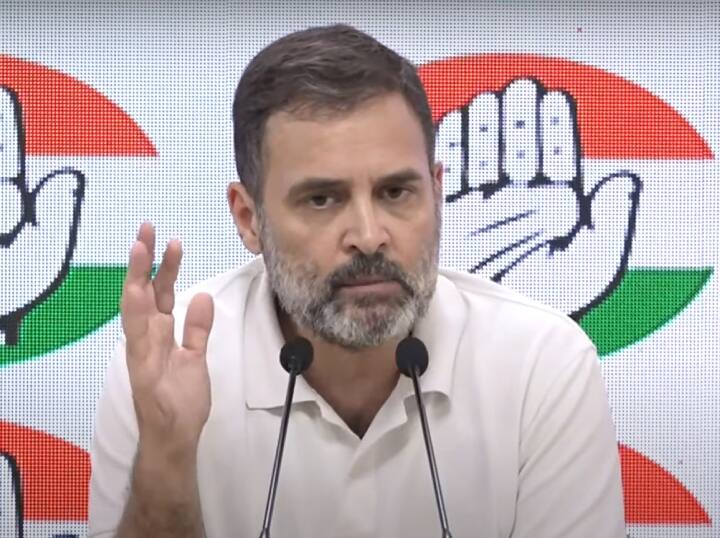Modi Surname Defamation Case: Congress leader Rahul Gandhi has challenged the Gujarat High Court’s decision in the Supreme Court in a criminal defamation case involving ‘Modi surname’. He turned to the Supreme Court on Saturday (July 15). On July 7, the Gujarat High Court upheld Rahul Gandhi’s conviction in the case. It was because of this matter that Rahul lost his membership of Parliament.
Rahul Gandhi has filed a special leave petition in the apex court challenging the Gujarat High Court’s order refusing to stay the conviction. Let us know on what grounds Rahul Gandhi has sought relief in his petition in the apex court.
‘Modi’ is an undefined group’
According to the report of Live Law, it has been said in the petition that ‘Modi’ is such an undefined group which has no shape. About 13 crore people live in different parts of the country and they belong to different communities. Whereas, under Section 499/500 of the Indian Penal Code, the offense of defamation is considered only in relation to a defined group. It states that the word ‘Modi’ does not fall under any category of association or collection of persons under section 499 of the IPC.
‘The statement was in relation to specified people’
It has been said in the petition that Rahul Gandhi’s statement was not against the complainant. It states that Rahul Gandhi, referring to Lalit Modi and Nirav Modi, had remarked that why do all thieves have the same surname? It states that the remarks were clearly in relation to specified persons, therefore, cannot defame the complainant Purnesh Ishwarbhai Modi, the remarks were addressed in a specific context with reference to specified persons.
‘The complainant is from Modh Vanik Samaj’
It has been said in the petition that the complainant has not shown how he has been affected. The complainant has admitted that he comes from Modh Vanik Samaj. The word does not interchange with Modi and the Modi surname is present in various castes.
‘There was no intention to defame the complainant’
It has been said in the petition that there is no intention to defame anyone. The remark was part of a political speech during the 2019 Lok Sabha campaign and there was no intention to defame the complainant. Hence the absence of human reason for the crime.
‘This move is harmful to democratic free speech’
The petition states that economic offenders and the Prime Minister in a political speech during a democratic political activity Narendra Modi Criticism was considered as an act of moral misconduct, for which strictest punishment was called for. Such a move in the midst of a political campaign is seriously detrimental to democratic free speech. This would set a disastrous precedent that would put an end to any political dialogue or debate.
‘Ethical misconduct not involved’
The petition states that the offense does not involve moral turpitude. The term moral turpitude cannot be applied to such a crime where the legislature has thought it appropriate to impose only a maximum punishment of 2 years. This offense is bailable and non-cognizable, so it cannot be considered heinous.
‘The High Court ignored the basic criteria’
It has been said in the petition that the High Court has ignored the basic criteria to stay the conviction. The conviction was liable to be suspended on the basis of two basic principles. Firstly, that it does not involve any serious offense punishable with death, imprisonment for life or imprisonment for a term of less than ten years, and secondly, that the matter should not be treated as moral turpitude. In the present case both these conditions of the petitioner are satisfied. Nevertheless, the High Court decided not to suspend the conviction considering the case as involving moral turpitude.
‘…will completely destroy the foundation of democracy’
It was said in the petition that the decision of the High Court in the case affects the freedom of expression and the democratic process. It said that if this controversial decision is not stopped, it will strangle free speech, free expression, free thought and free statement. If political satire is considered as the basis, then any political speech criticizing any government will become an act of moral misconduct. This will completely destroy the foundation of democracy.
Read this also- Neither SP, nor JDU, nor RJD, know which are the 5 big parties of the country on the basis of MLA




